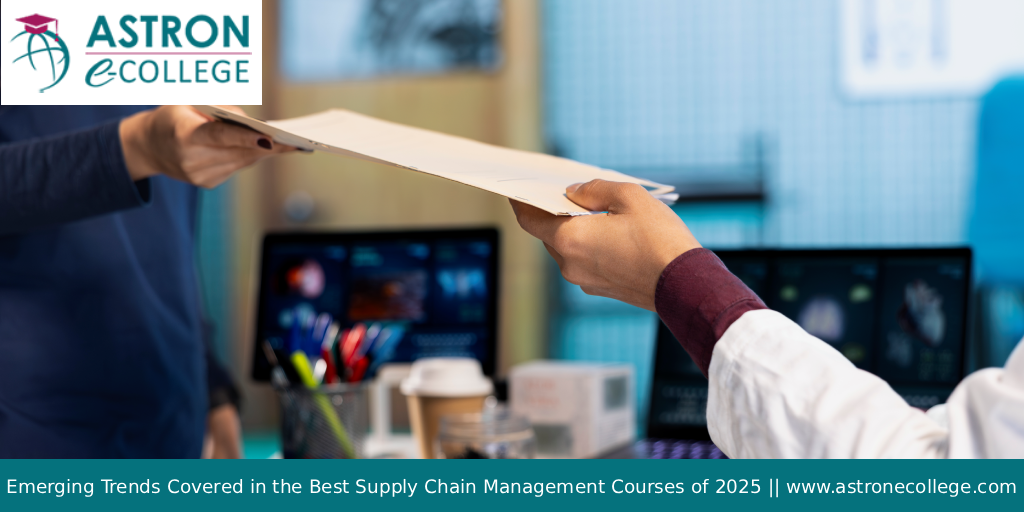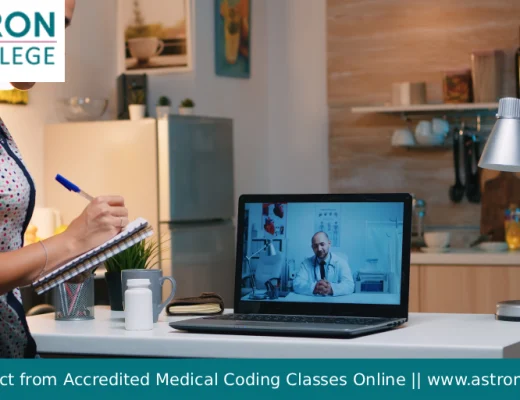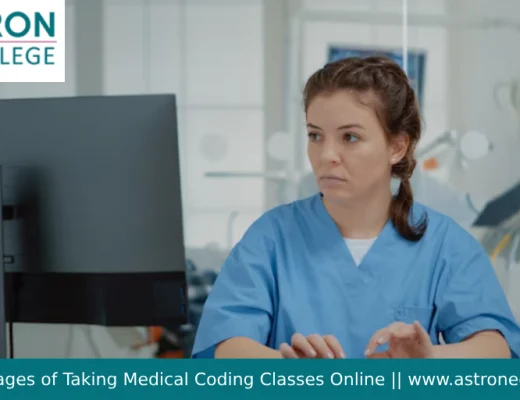Supply chain education in 2025 is no longer just inventory turns and logistics networks — top courses now teach the technologies and mindsets that shape tomorrow’s resilient, sustainable supply chains. Here are the key emerging trends that the Best Supply Chain Management Courses are covering this year — and why they matter.
Agentic AI and autonomous operations
AI systems that are agentic (capable of making decisions) are being introduced in courses that automate both routine planning and present exceptions to humans to review. Students acquire practical experience of AI-based applications to autonomous order routing, dynamic pricing and replenishment, which employers are seeking because organizations shift to self-driving supply chains.
Digital twins and IoT-driven visibility
Digital model twin (digital versions of factories, warehouses, and whole networks) is introduced in curricula where students are able to simulate scenarios, experiment on redesigns and quantify effect without risking it in the real world. Integrated IoT labs are a type of training that educates on how sensor data is fed to these twins so as to generate real-time visibility and accelerated decision-making.
Sustainability, ESG and circular supply chains
Sustainability courses are now becoming key: lifecycle analysis, carbon accounting, water stewardship and lifecycle design are viable components of course projects. Programs focus on regulatory compliance, reporting and measures to minimize scope 1-3 emissions – education is aligned with corporate ESG objectives.
Blockchain, traceability and secure data-sharing
In order to impart provenance and tamper-evident recordkeeping, blockchain pilots and secure data-sharing case studies are often featured in numerous courses. Students will get to know that distributed ledgers can enhance supplier traceability, lessen fraud, and streamline audits – in combination with the discussion of privacy and cybersecurity.
Advanced analytics, predictive planning and digital control towers
Predictive analytics, machine learning forecasting, and simulations on the control tower assist learners to make the transition between reactive firefighting and proactive planning. Real datasets are generally used in course work to ensure that students develop a demand-sensing, inventory optimization, and risk-forecasting models.
Network resilience, nearshoring and supply-base strategy
Recent case studies in major programs aim at redesigning networks to emerge resilient: multi-sourcing, nearshoring and scenario-based contingency planning. These competencies are on demand in the process of rebalancing globalization and reducing risks in firms.
Robotics, automation and warehouse modernization
Practical units on autonomous mobile robots (AMRs), automated sortation and robotic process automation (RPA) demonstrate how both physical automation and software bots accelerate the fulfillment and minimize errors.
Human machine collaboration and upskilling
Best courses meet technical subjects with human-related topics change management, ethical AI, and cross-functional teamwork since it is only through workplace adjustment and reskilling that technology can deliver.
Choosing the right course
In search of concept and practice: labs (digital twins, control towers), industry data-capstone projects, and sustainability and ethics modules. In 2025, employers will be rewarding graduates who not only know the tools, but how to utilize them to create safer, greener and more autonomous supply chains.




